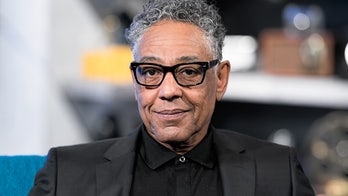LOS ANGELES – Discovery Channel’s popular reality show about a family of gun makers, “American Guns," came under intense scrutiny in the wake of Friday’s mass shooting at a Connecticut grade school, with people flooding the show’s Facebook page calling for its cancelation.
“I know you all have to make money but would Discovery Channel PLEASE consider ceasing to broadcast the show in the U.K.? Sadly your program makes buying/owning guns seem fun, glamorous, even normal,” wrote one. Another tweeted, “Dear Discovery Channel: it’s not appropriate showing the program American Guns now!” Another weighed in: “With Discovery shows like 'Sons of Guns', 'American Guns', 'Ted Nugent's Gun Country' etc it's not surprising how guns r seen as acceptable.”
It seems the critics may have been heard.
A Discovery rep told FOX411 that “American Guns” – which is out of production and not currently broadcasting new episodes – has been canceled and will not return for a third season. This comes as something of a surprise given its growing popularity. The show had a 50 percent ratings increase for its second season premiere, and one of its stars, Renee Wyatt, recently said she would “definitely” be interested in returning for season three. The rep, however, would not link the show’s cancelation to the Connecticut school massacre.
A rep for the guns rights group The Firearm Coalition responded, telling us: "It does not surprise me that Discovery may be lowering the profile of its gun coverage. That's their prerogative. Nonetheless this tragedy has as much to do about lawful use of guns as the lawful use of cars has to do with a car bombing."
Indeed the tragedy in Connecticut, in which with 27 people, including 20 school children, were killed by a lone gunman, has many in the entertainment industry struggling with the issue of firearms and gun violence. The star and director of the upcoming blood-and-gore filled “Django Unchained” differed this weekend about Hollywood’s responsibility when it comes to violence in film.
Actor Jamie Foxx told the Associated Press that the entertainment industry needs to start bearing some responsibility for violent content it produces. "We cannot turn our back and say that violence in films or anything that we do doesn't have a sort of influence," Foxx said. "It does."
But director Quentin Tarantino, who has built his career on depictions of graphic violence in films like “Inglourious Basterds” and “Kill Bill,” said he was tired of having to defend his movies, noting that “tragedies happen” and the blame should fall on those guilty of committing them.
“Quentin Tarantino seems to believe he is magically disconnected from the human race. Somehow everything he creates has no impact on us? He’s not the only director or movie producer who denies any negative effect from their work,” scoffed documentary producer Nicole Clark, who also educates young children on the effects of the media. “But ask any of these producers or directors if they think films can have a positive effect on society, and they will instantly say yes."
The Tarantino movie – described by one early filmgoer as so violent that they had to leave the theater midway through – is slated for official release on Christmas Day, prompting many to wonder if producer Harvey Weinstein, who recently called for a Violent Movie Summit to discuss the hot-button topic, will look to delay its release given the current circumstances. The film’s press junket, held in New York the day after the Connecticut shootings, proceeded as scheduled.
A Weinstein rep was not immediately available for comment.
Audiences are also questioning the upcoming Sean Penn film “Gangster Squad,” which was promoted with a violent ad during an NFL game on Sunday. The shooting-saturated movie is set for theatrical release next month after being delayed over the summer following the Aurora movie theater shooting. Even though directors edited out a cinema shooting spree scene, many are still disturbed by the movie’s timing and heavy promotion in the wake of the Sandy Hook tragedy.
“My 5 yr old and I are watching the Colts game. Then comes on violent guns a-blazin’ Gangster Squad ad. God Bless America,” tweeted one. Another questioned “why are they showing these ads this weekend?” Another observed: “Not the best timing for that ‘Gangster Squad’ commercial. Counted 11 guns throughout. And we wonder how people are influenced.”
Several studies over the past decade have pointed out connections between television and real-life aggression. According to the American Academy of Child and Adolescent Psychiatry, American children watch an average of four hours of television daily, and that “television can be a powerful influence in developing value systems and shaping behavior,” and that the repeated observation of TV violence can lead minors into gradually accepting violence as a way to solve problems, becoming numb to the horrors of violence, and imitating that violence as a way to solve problems.
“All artists, whether they work in visual, film, television, video games, or other media understand that they have the potential to affect viewers – in fact, they want it. All viewers want to be affected by media. In fact, if the media doesn't affect us, we call them boring,” said Douglas A. Gentile, Ph.D. a professor of Psychology at Iowa State University. “Humans are amazing learners, we can learn just from seeing something once. So it is no surprise that we can learn from the media, especially if the media are particularly exciting or interesting.”
Vincent Newman, the producer of this year’s remake of the violent cult film “Red Dawn” and the upcoming “We're the Millers,” said that those who make movies and television shows are indeed responsible for the effect their products have on society as a whole.
“It would seem the first and most direct step for individuals in Hollywood to be responsible is to recognize that the stories we tell, depending on how they are told and in what context they are told, can have an impact of varying positive or coarsening degrees beyond simple entertainment,” he told FOX411. “Thus far, this has rarely been part of the conversation during development.”
But others point out that while violence is indeed prevalent in today’s mainstream media and entertainment, it is the availability of guns in the United States that exacerbates the issue.
“Hollywood is an easy target to point the finger of blame at, and no one can rationally say that there isn’t too much violence in film, TV, video games, etc. But these images are available in virtually every civilized nation in the world,” explained Lonnie Burstein, Executive Vice President of Programming at Debmar Mercury, a subsidiary of Lions Gate Entertainment. “Yet no country has the death by firearms epidemic that exists here in America. Our violent films and video games are seen everywhere, yet we don’t see this level of violence in other countries.”
Madison Jones, the Co-Chair of de Passe Jones Entertainment, a production company currently working on a movie about the life of Martin Luther King, Jr. with Steven Spielberg, said the Sandy Hook shootings were the “act of a monstrously deranged person and cannot conveniently be assigned to violence in entertainment.”
“There is no way to honestly and intelligently scapegoat anyone or anything when we seek blame for tragedy,” Jones said. “Demonizing the entertainment industry because of a madman that was disturbed is not the solution.”
Reps for guns rights groups including the National Rifle Association, the Gun Owners of America, and the Second Amendment Foundation did not immediately return calls and emails for comment.
Diana Falzone and Danielle Jones-Wesley contributed to this report.






